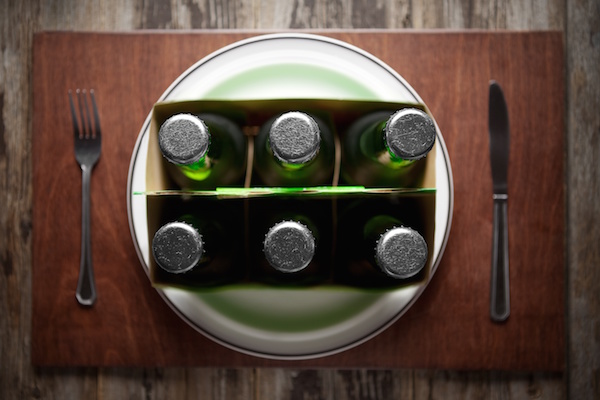MONDAY, Oct. 19, 2015 (HealthDay News) — While some studies have hinted that a little alcohol might be harmless during pregnancy, a leading U.S. pediatricians’ group has issued a new warning that no amount of drinking is safe while pregnant.
“The only guarantee of having no effects from alcohol is no prenatal alcohol exposure,” said Dr. Janet Williams, a professor of pediatrics at the University of Texas Health Science Center and co-author of the new statement and report from the American Academy of Pediatrics (AAP).
It’s likely, she added, that future research will continue to show that “alcohol has subtle yet important lasting effects on academic performance, attention, behavior, cognition, memory, language skills, and visual and motor development.”
Physicians and researchers have been warning about the hazards of alcohol use during pregnancy for decades. Yet almost half of all women of childbearing age in the United States reported consuming alcohol within the past month, the researchers said, and nearly 8 percent of women continue to consume alcohol during pregnancy.
The AAP published its new statement in part to update health workers and the public, Williams said.
According to the new report, published online Oct. 19 in the journal Pediatrics, alcohol use during pregnancy can cause thinking and behavioral problems that last a lifetime. “No amount of alcohol intake should be considered safe,” the report stated, and “there is no safe trimester to drink alcohol.”
The report said that all forms of alcohol — beer, wine and liquor — pose similar risks. Getting quickly drunk, known as binge drinking, poses a higher risk in line with the extra amount of alcohol consumed, the report noted. According to Williams, binge drinking in women is defined as four or more standard drinks, typically within two hours.
Some studies published over the last few years have hinted that a small number of drinks during pregnancy could be safe. For example, research published in 2010 in the Journal of Epidemiology and Community Health found no extra behavioral or thinking risks from having one or two drinks a week.
However, “studies do not conclude that alcohol use is safe,” Williams said. Instead, they only show “that in certain study populations under certain conditions, there is or is not sufficient evidence of effect that can be attributable to alcohol exposure.”
Indeed, according to Janni Niclasen, an assistant professor of psychology at the University of Copenhagen who has studied alcohol and pregnancy, “With our current research methods, we will never be able to conclude from human studies whether there is a safe lower level below which drinking is not associated with any harm to the developing fetus.”
Of course, many women inadvertently drink alcohol without realizing that they’re pregnant. And alcohol often plays a role in sexual encounters aimed at producing a baby, including those that may occur when a woman doesn’t know she’s pregnant. So, should women of childbearing age always avoid alcohol?
Williams isn’t willing to go that far, and would only say that alcohol and pregnancy don’t go together. She added that some women, despite the findings of research, “continue to rationalize that their own alcohol use during pregnancy is sufficiently low or infrequent to be safe.”
Niclasen, the Denmark researcher, said women who are pregnant or trying to become pregnant should avoid all alcohol. “I am often called a moralist for having this perspective, but I think we need to focus on the development and future life of the unborn children,” she said.
Christina Chambers, a professor of pediatrics at the Center for Better Beginnings at the University of California, San Diego, offers this advice: “Women of childbearing age who drink alcohol should consider their pattern of drinking. For example, avoid binge drinking and avoid pregnancy as long as they are drinking. If pregnancy is planned, then alcohol can be discontinued.”
There may be no risk “if a woman has consumed small amounts of alcohol prior to knowing she is pregnant,” she said, but “the best advice is to avoid pregnancy if drinking and to avoid drinking if pregnant.”
According to both Williams and Chambers, alcohol use poses risks in all stages of pregnancy, and neither would say the risk is higher in certain stages.
Overall, Chambers said, the AAP’s statement “is an important stand to take, and hopefully it will lead to less stigma associated with [fetal alcohol spectrum disorders] and to more access to and uptake of prevention and treatment services.”
More information
For more about alcohol and pregnancy, visit the March of Dimes.
Copyright © 2026 HealthDay. All rights reserved.

